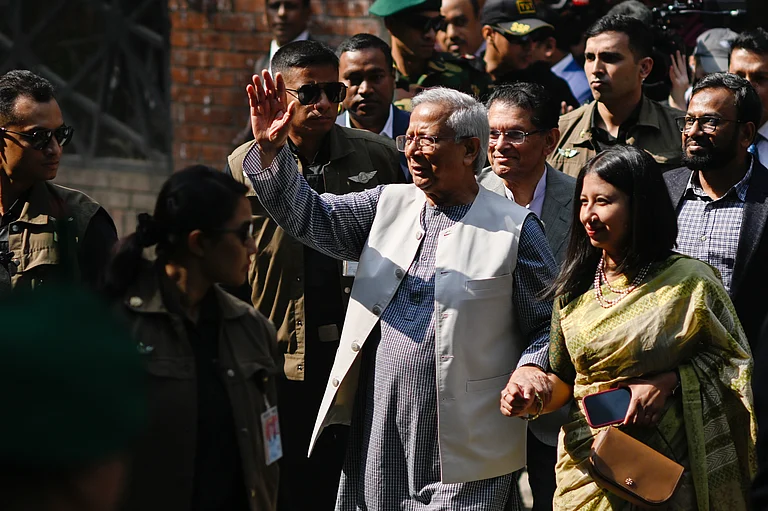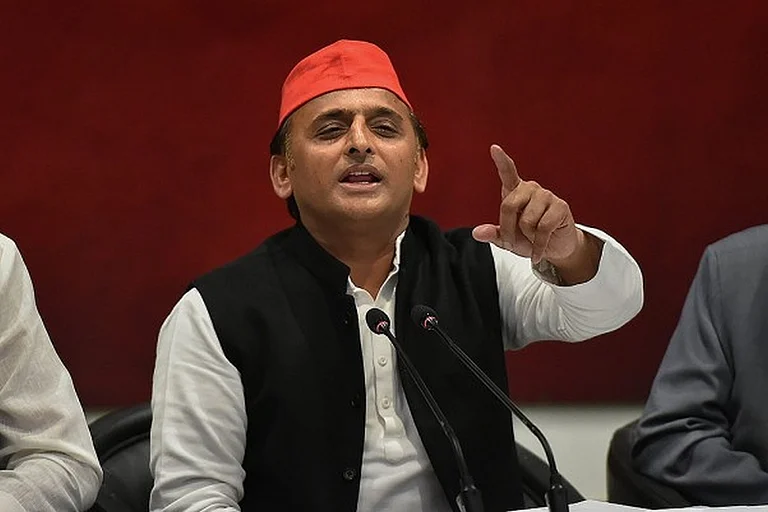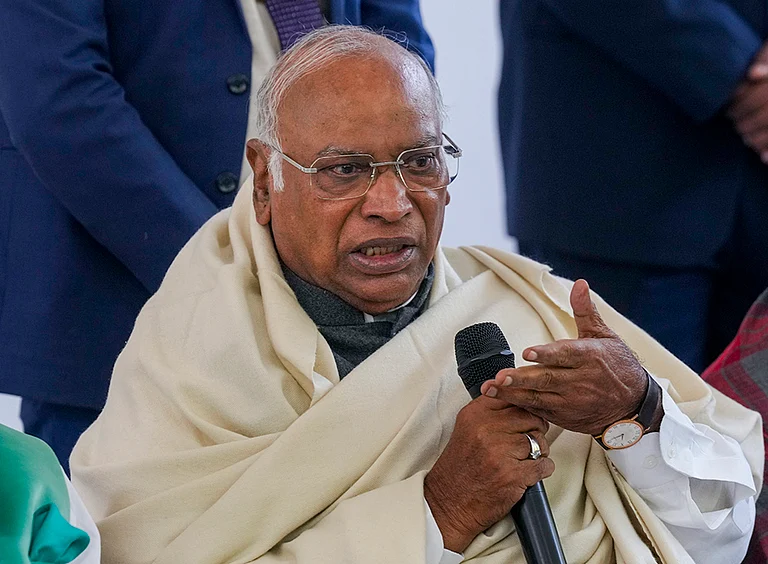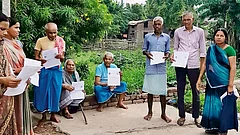The Supreme Court has described the EC’s powers under Article 324 as “plenary” and “extraordinary” for conducting elections to Parliament and State Legislatures.
The right to vote, however, remains a statutory right, obliquely a constitutional right, and has not been written into the Constitution or interpreted as a fundamental right.
When voters lists are suspect, EVMs are doubted and the autonomy of the EC is questioned, one wonders how sturdy this pillar of the basic structure is.
In my book Poles Apart: The Military and Democracy in India and Pakistan I argue that while the army in Pakistan has cramped (even usurped) democratic space, India has been fortunate to have had a military that ‘kept out’ and enabled democratic institutions to grow. The Election Commission of India (EC) is central to that democratic dividend we have earned and which gift horse we cannot look in the mouth. To then find an EC that is perceptibly biased, or at the very least, not pro-voter, is a chink in the edifice. If elections are not to be representative, plural and participatory, then democracy is condemned to remain the ‘top dressing’ that Dr Ambedkar predicted it would be. Elections are, a crusade for social justice. They empower us before they empower the elected. And here, the EC as a facilitator-ombudsman cannot help but be an empathetic, problem-solving machine.
From personal experience, I can say that finding your name on the voters’ list is a game of chance. One may have voted in the state election only to find their name missing in the list for the general election a few months later or having one’s voter ID unilaterally cancelled. The actual voting process itself is usually seamless and the EC ought to be credited for conducting polls in the remotest parts of the country. But when schemes such as the Special Intensive Revision (SIR) in Bihar look at ‘cleansing’ voter lists and making the right to vote a mirage, then institutional credibility is at stake.
The Supreme Court has variously, referred to the EC as having been ‘blessed with extraordinary powers to hold elections to both Parliament and State Legislatures from time to time’ with powers under Article 324 that are ‘plenary’. And that the ‘fate of…democracy itself to a great measure is allowed to rest in the hands of the Election Commission.’ Noticing its constitutional source, the court has commented on the EC’s duty to act in accordance with the letter and spirit of the Constitution. This role is further accentuated by the fact that the main players in the electoral process—political parties —are not themselves mentioned in the Constitution for their establishment or functioning. The only oblique reference to them is in Schedule X in the context of ‘anti-defection’.
The EC’s powers over the electoral process include the scrutiny of all expenses incurred by a political party or a candidate during an election and the framing of a Model Code of Conduct to be observed. It has the enviable role of regulating the inputs, processes and outcomes of elections. These, respectively include preparation of the electoral roll thereby determining the voters’ citizenship and eligibility to be on the roll, recommending the timing of the elections to the President or Governor (as the case may be) and operating the Symbols Order relating to allotment of symbols to political parties; regulation of electoral speech and the regulation of campaign finance; and delimitation of constituencies. The adjudication of election disputes is, of course, left to the domain of the courts. Together, these functions underscore what Professor Richard Pildes calls the ‘constitutionalisation of democratic politics’ in India.
The Constitution of India does not explicitly mention the right to vote as a fundamental right. Article 326 of the Constitution, however, refers to the elections to the House of the People and to State legislative assemblies as being based on adult suffrage and provides for eligible citizens to be ‘entitled to be registered as a voter at any such election.’ A plain reading of this provision suggests that the right to vote is sourced from the Constitution and presupposes the right to vote. In ‘People’s Union for Civil Liberties v Union of India (2013) 10 SCC 1’ the Supreme Court, while dealing with the need to introduce ‘None Of The Above’ (NOTA) in electronic voting machines (EVMs), interpreted its previous decisions to hold that though the Court had resisted from recognising the right to vote as a constitutional right, citizens had a right to the NOTA option in elections as a right to free speech and expressed under Article 19(1)(a) of the Constitution. The Court now innovated a ‘right to freedom of voting’.
The right to vote, however, remains a statutory right, obliquely a constitutional right, and has not been written into the Constitution or interpreted as a fundamental right. This is anomalous considering democracy itself has been read to be part of the basic structure of the Constitution by the Supreme Court. Democracy in India then stands on the shoulders of the EC as an enabler of free, fair and fulsome elections. When voters lists are suspect, EVMs are doubted and the autonomy of the EC is questioned, one wonders how sturdy this pillar of the basic structure is.
The irony is that in the T. N. Seshan era, an ordinance was brought to rein in a Chief Election Commissioner (CEC) who was seen as being overly independent by providing for a multi-member commission. We are now at a stage, where the possibility of such an appointee is almost fictional owing to the amended appointment procedure that vests the political executive with absolute power. The addition of election commissioners to the EC was seen by the Supreme Court as bringing about a ‘balance and check’, a ‘concept of plurality’ demanding ‘procedural sanctity’ and full transparency in their selection. The law providing for the selection of ECs has dispensed with the presence of the Chief Justice of India and now vests in a Selection Committee comprising the Prime Minister, a nominated cabinet minister and the Leader of the Opposition. The effects of such an appointment on the independence of the EC are more serious when one factors in the proposed ‘One Nation One Election’ amendment and its sweeping effects.
According to Article 324(5), a CEC shall not be removed from office except in like manner and on like grounds as a judge of the Supreme Court, while the commissioners can only be removed on the (objective) recommendations of the CEC. Provisions such as this are meant to assure the independence and status of the Commission and its members, isolating its operations from political interference and executive control. Of course, removal differs from resignation, and an election commissioner can always be ‘edged out’ or resign of their own volition. The EC has seen two commissioners resign between 2018 and 2024, including Ashok Lavasa who was regarded as a well-meaning dissenter.
While a dominant executive would find it palatable to control the appointment and functioning of the EC, the EC on its part has two significant factors to consider as regards its autonomy. One, its role as the beating heart of the world’s largest democracy, which gives it a preeminent position (and precedent) in a global context. The other, its role among the most powerful institutions in the republic of India, alongside the Supreme Court. (The [in]actions of the EC are, of course, subject to judicial review by the court.) In both settings, the EC enjoys a uniquely important position, and thereby a responsibility, to deliver with sheer independence and fairness. Instead, a recent press conference by the EC found the CEC singling out the Leader of the Opposition with a demand for affidavits to justify his allegations of ‘vote chori’. The tone and language of this conference could behove a lay political rival, not a constitutional powerhouse that the EC is expected to be. In the years to come, the conduct of the EC will define our democratic credibility and commitment to constitutionalism.
MORE FROM THIS ISSUE
Aditya Sondhi is Senior Advocate, Supreme Court of India.
Democracy is about ballots, but also about memory—who safeguards both, and who seeks to rewrite them? Outlook’s September 11, 2025 issue probes these erasures—of voters, voices, and histories—asking what they mean for India’s democratic future. The article appeared in print as 'A Chink in the Edifice'.
(The views expressed by the author are his own.)



























